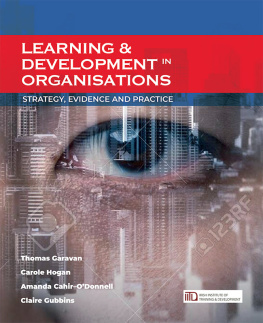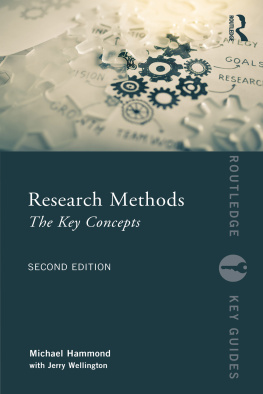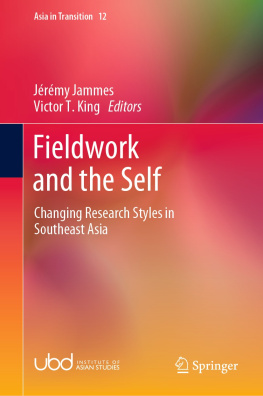Matthew Jones 2014
First published 2014
Apart from any fair dealing for the purposes of research or private study, or criticism or review, as permitted under the Copyright, Designs and Patents Act,1988, this publication may be reproduced, stored or transmitted in any form, or by any means, only with the prior permission in writing of the publishers, or in the case of reprographic reproduction, in accordance with the terms of licences issued by the Copyright Licensing Agency. Enquiries concerning reproduction outside those terms should be sent to the publishers.
Library of Congress Control Number: 2013946899
British Library Cataloguing in Publication data
A catalogue record for this book is available from the British Library
ISBN 978-1-4462-5721-0
ISBN 978-1-4462-5722-7 (pbk)
SAGE Publications Ltd
1 Olivers Yard
55 City Road
London EC1Y 1SP
SAGE Publications Inc.
2455 Teller Road
Thousand Oaks, California 91320
SAGE Publications India Pvt Ltd
B 1/I 1 Mohan Cooperative Industrial Area
Mathura Road
New Delhi 110 044
SAGE Publications Asia-Pacific Pte Ltd
3 Church Street
#10-04 Samsung Hub
Singapore 049483
Editor: Katie Metzler
Assistant editor: Lily Mehrbod
Production editor: Thea Watson
Copyeditor: Rose James
Proofreader: Elaine Leck
Marketing manager: Ben Griffin-Sherwood
Cover design: Francis Kenney
Typeset by: C&M Digitals (P) Ltd, Chennai, India
Printed in Great Britain by Henry Ling Limited at The Dorset Press, Dorchester, DT1 1HD
Preface
The original idea for this book emerged from my experiences in teaching research methods to graduate students, many of whom had just completed an undergraduate degree without having spent much time working in organizations, but who aspired to pursue research in organizational settings to Ph.D. level, and potentially to an academic career. Most of the available research methods textbooks, however, while sometimes very good on techniques of data-gathering (especially via experiments, surveys or occasionally interviews), data analysis (especially of the quantitative variety) and in a few cases on the philosophy, and occasionally ethics, of research, were notably silent on what is actually involved in doing fieldwork in organizations.
Like an instruction manual for a device that omits crucial steps in the process, therefore, or a childrens craft programme that moves from the disassembled components to heres one that I made beforehand with only the barest hint of what goes on in between, most methods textbooks tend to focus on abstract description of general principles and final products rather than how research happens in practice. They may therefore be useful, as Bell and Newby (1977: 9) suggest, in providing some standard, some set of procedures, some method by which research practice could be evaluated, but they are of limited help in actually doing research, as opposed, say, to planning it or judging its conformance to accepted norms. Despite the observation of Bell and Newby in 1977 that it is common knowledge that there is considerable divergence between how sociological research has actually been done and what is found in the textbooks, moreover, little would appear to have changed in the intervening years. Thus Walford (2001: 2) comments:
Many social science and educational research methods textbooks still abstract the researcher from the process of research in the same way as have natural science textbooks. The social dimension of research is largely omitted and the process is presented as an analytic practice where any novice researcher can follow set recipes and obtain predetermined results.
As a supervisor of M.Phil and Ph.D. students conducting largely qualitative studies in a range of organizational settings, moreover, most of whom were more than competent in learning techniques as required, it was precisely this practical aspect of research that many seemed to find the hardest to get to grips with. The description given by Gans (1968: 312) of the anxieties of fieldwork, would seem to resonate with their experience (as well as my own at times):
the constant worry about the flow of research activities: Is one doing the right thing at the right time, attending the right meeting, or talking to the right people? ... [the feeling that] one must be in many places at the same time. This being impossible, one must make the right choice of what to study every day, and even so there is always the danger of having missed something and of never being able to retrieve an event that has already become history.
Finding no guidance from textbooks on these issues, however, the students would talk of wandering in the dark, making it up as I go along and learning the hard way.
Although to some extent the students difficulties could be ascribed to the craft character of fieldwork (Punch, 1986), and qualitative research in particular, that means that it can only really be learned through doing it, there was also a sense that it should be possible to provide some information on what organizational fieldwork involves, which might offer guidance and reassurance to those undertaking research in organizations for the first time.
Aware of various confessional methodological appendices in organizational ethnographies such as those of Atkinson (1997), Kunda (1992) and Luke (2003), I therefore started to look for additional fieldwork accounts, as well as any literature that might draw some common threads between these contributions, or offer suggestions on how fieldwork might best be approached. My first discovery was the edited collection Doing Research in Organizations (Bryman, 1988), but I found that this was long out of print. Further investigation revealed some sociological literature, albeit much of it dated, such as Wax (1971), Johnson (1975) and the edited collections of Hammond (1964), Bell and Newby (1977) and a range of articles in specialist research methods journals, such as Journal of Contemporary Ethnography and Qualitative Research in Organizations and Management. While this suggested that the topic was not as wholly neglected as it had seemed at first, the literature appeared to be quite fragmented and had, for whatever reason, rather fallen out of favour in recent years. A synthesis and updating of this literature seemed, therefore, like it might be a worthwhile contribution.
In terms of updating, there are certainly some aspects of the earlier literature, such as the gendered language, that would seem likely to disconcert the contemporary reader, but there are also a lot of specific observations on the issues faced in conducting research in organizations that are still very much applicable today. In drawing quite extensively on this literature, some of which dates back to the 1950s, therefore, the aim has been explicitly to counter the general neophilia and parochialism of much research, especially in management, which, with a few exceptions, regards anything published more than five years ago or outside a coterie of discipline-specific journals as not worthy of any attention. If matters of contemporary concern were well addressed fifty years ago, or may be of relevance to one discipline despite being published in a journal from another field, we may do better to acknowledge this, rather than reinvent the wheel.















